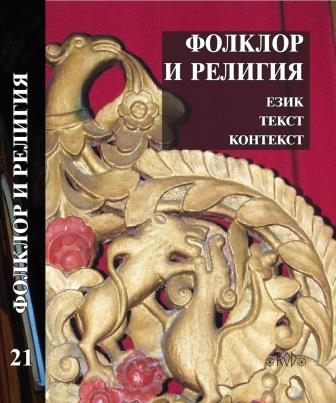ВИНА И НАСЛЕДСТВО. СЪВРЕМЕННИ МЕМОРИАЛНИ ПРАКТИКИ В ГЕРМАНИЯ Част 2
GUILT AND HERITAGE. CONTEMPORARY MEMORIAL PRACTICES IN GERMANY Part 2
Author(s): Dessislava TiholovaSubject(s): Anthropology, Social Sciences, Psychology, Customs / Folklore, Sociology, Cultural Anthropology / Ethnology, Culture and social structure
Published by: Асоциация за антропология, етнология и фолклористика ОНГЬЛ
Keywords: Memory; guilt; heritage; monument; memorial plaque; memorial; withes; with trials;
Summary/Abstract: The current text continues the observations on the contemporary memorial practices, and more specifically – on the so-called “Denkmalarbeit” process. The idea of the “Guilt and Heritage” series is based on the hypothesis for guilt as a resource and catalyst in the process of forming local cultural heritage in Germany through the update of moments from the distant past of the country and their presentation in the light of a new reading and rationalization. The topic of the persecutions against witches, called by many names, and known most often as the “Witch hunts” presents new aspects of old mental adjustments, known in German society since the time of the First World War as “Debate over Guilt”. In the context of the witch trials, this guilt finds new field for manifestation, as far as the trials include both the religious and the secular authorities, as well as the attitude of the community, called by Ulinka Rublack “a spiral of social reproach”. Moreover, if guilt regarding the First World War is immanently extraneous for the community, but imputed forcefully 398 by international agreements, then the guilt for the Holocaust (reviewed in the first article of the series) produces a new niche in the so-called “duty of memory” and gives birth to the next wave of valorization of heritage. The empirical material includes the variety of places of memory for the witch trials, inscriptions on monuments and memorial plaques, requests for rehabilitation and apologies, delivered both by the church and by the secular local authority. This variety confirms again the hypothesis that the topic for guilt continues to be current for German mentality even today, and the large number of monuments rather testifies for the exacerbating of the problem, and not for the discovery of a way out of it.
Journal: Годишник на Асоциация за антропология, етнология и фолклористика »Онгъл«
- Issue Year: 2022
- Issue No: 21
- Page Range: 367-398
- Page Count: 32
- Language: Bulgarian
- Content File-PDF

